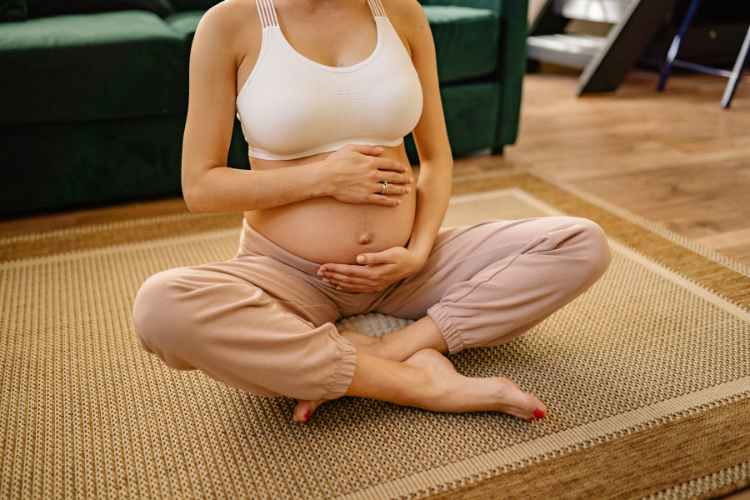The ideal time to become pregnant is when you are emotionally, physically, socially, and financially prepared to assume the duties of carrying and raising a child. It’s up to you to decide when you want to have a family.
According to specialists, The best time to get pregnant is between your 20s and your early 30s, although every woman’s ideal age for conception differs. Fertility typically decreases with aging but with the help of medical progress, women of older ages can conceive and give birth to healthy children.
Continue reading the article to know about the best age for women to be pregnant, as well as the relationship between pregnancy and age.
Conceiving Before Your 20s
- Although it may not be the best time for most women, this is still the most fertile period.
- Pregnancy weight is simple to control because women at this age often weigh less.
- A higher risk of hypertensive pregnancy problems, abortion, urinary infections, and early fetal membrane rupture exists.
- To deal with pregnancy-related concerns, women might not be emotionally ready.
- While raising the child, parents could experience financial difficulties.
Conceiving In Your 20s
- It is simpler for women to become pregnant today than it will be later since they are fertile.
- In the 20s, when most women are at the height of their fertility, the likelihood of a healthy pregnancy and delivery is greatest.
- They have sufficient stamina to navigate through the stages of pregnancy and are less likely to develop chronic illnesses.
- It’s simple to put the weight back on after giving birth and the 20s are a good age to return to your usual weight.
- The majority of young couples may be paying off their student loans and establishing themselves in their employment, so money worries could still be an issue.
RELATED – CHEMICAL PEELS FOR MELASMA: RESTORING SKIN CLARITY AND EVENNESS
Conceiving In Your 30s
- As you approach your 30s, the quantity and quality of your eggs may start to decline, which could affect your fertility and there is a larger risk for aneuploidy.
- After age 35, a significant drop in fertility occurs and you might need reproductive support procedures in your late 30s.
- Increased risk of gestational diabetes, high blood pressure, and challenging labors cause problems in conceiving.
- Therapies for in vitro fertilization (IVF) and ovulation stimulators may be less effective.
- IVF and other procedures have a reduced success rate among people in their 30s.
- After age 35, there is a higher risk of genetic abnormalities and miscarriage.
- If you get pregnant after the age of 35, you run a very high risk of having a stillbirth.
- Given that hormonal changes in elderly women cause the production of numerous eggs, the likelihood of twin conception is considerable.
- But the 30s is the age when couples are dedicated to having children as their relationships are stable at this age.
Conceiving In Your 40s
- In the 40s, there is a natural decrease in the likelihood of becoming pregnant.
- Given that women’s fertility declines with age and there is a higher risk of complications like miscarriage, ectopic pregnancy, diabetes, preeclampsia, placental issues, preterm labor, and low birth weight, which can affect the health of both the mother and the baby, pregnancy at 40 is regarded as being riskier than pregnancy at a younger age.
- To check for genetic diseases like Down syndrome in the unborn child, pregnancy needs to be carefully controlled and may require extra procedures like amniocentesis or chorionic villi sampling (CVS).
- Even in your 40s, with the right treatment, you can maintain your reproductive health and have a safe pregnancy.

What Are The Pros Of Being Conceiving in Early Years?
- Your child and you have smaller cultural differences.
- You can think about having more kids in the future.
- To stay up with your child, you would not have to work out more physically.
- You’ll have more free time later in life because the kids will be settled sooner.
- Pregnancy bounce-back would happen quickly and taking time off from work will be simpler.
- Your chances of seeing a few generations down the line in the future.
What are the Pros Of Conceiving Later In Life?
- You get wiser as a result of your experiences.
- A higher income will be available to you to support the child.
- Due to a higher quality of life, children are shown to be healthier with fewer health difficulties.
- More time will be available for you to spend with your child.
- Before determining when to start a family, you should think about things like fertility, emotional development, work stability, family orientation, financial health, etc.
RELATED – EXPLORING THE ROLE OF GUT MICROBIOME TESTS IN INDIAN HEALTHCARE
The Final Words
Whether you decide to become pregnant in your 20s or 40s, will rely on your health, financial situation, and personal preferences. There may not be a perfect time to conceive, but the age when you are most healthy and fertile is the greatest time to conceive and have a risk-free pregnancy.
We hope that you found this article worth reading and that it helped you decide the best age for women to be pregnant.

